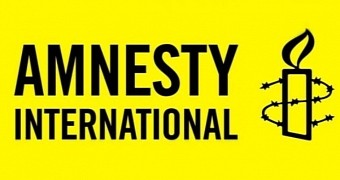Amnesty International is condemning the stance the Turkish government has taken in regards to the critics that posted messages on Twitter.
The human rights organization feels like the Turkish government’s prosecution of its online critics is a “deeply hypocritical” stance, especially since the country is the host for the Internet Governance Forum, which takes place between September 2 and 5.
Amnesty International called on future hosts of the event to set a better example than the one offered by Turkey, while highlighting grave violations of Internet freedom by the US, Ethiopia and Saudi Arabia, to name a few.
The situation that the organization is trying to draw attention to is the prosecution of 21 Twitter users who are being tried in Izmir, Turkey, and who face up to three years in jail for posting messages during the protests that took place last year. They are being accused of inciting the public to break the law, although Amnesty International says there was no content to speak of.
“It’s astounding to see Turkish authorities plough on with the prosecution of Twitter critics, even as they host a discussion on Internet governance where human rights are a key theme,” said Sherif Elsayed-Ali, Deputy Director of Global Issues at Amnesty International.
He believes that the double standards on freedom of expression online are a “bitter irony” for the dozens of Turkish Twitter users who face trial for making their thoughts public.
Turkey has been changing its stance towards Internet freedom of expression for a while now. After blocking access to social networks, and even YouTube, for several weeks and messing with Google’s DNS in order to prevent people from circumventing the blockade, the government moved on to other tactics.
Twitter has since been threatened with some inquiries that would most likely get it banned in the country with or without a real reason. The company was forced to agree to do more about blocking content for Turkish Twitter users, which it previously refused to do. More and more court orders have been delivered to Twitter, however, including some regarding RedHack accounts which posted information about the country’s then-prime minister, actual president Recep Tayyip Erdogan.
Amnesty International indicates, however, that there are plenty of other countries that are in the wrong when it comes to Internet freedom, including Ethiopia, where seven bloggers face the death penalty for sharing information about online security, Vietnam where two bloggers are serving 10 and 12 year prison sentences for writing about human rights abuses, and Saudi Arabia where a website founder has been sentenced to 10 years in prison, 1,000 lashes and a hefty fine for “insulting Islam.”
Furthermore, the United States is also on the list due to the things exposed by the documents made public by Edward Snowden.
“Instead of hunting down Edward Snowden, the US government should focus on reforming its surveillance programmes to end the unjustified violation of Internet users’ privacy he brought to light. Although the Internet has allowed free expression to flourish in many places where it had been tightly suppressed, it also provides new ways for governments to spy on, censor and silence their critics,” said Sherif Elsayed-Ali.

 14 DAY TRIAL //
14 DAY TRIAL //